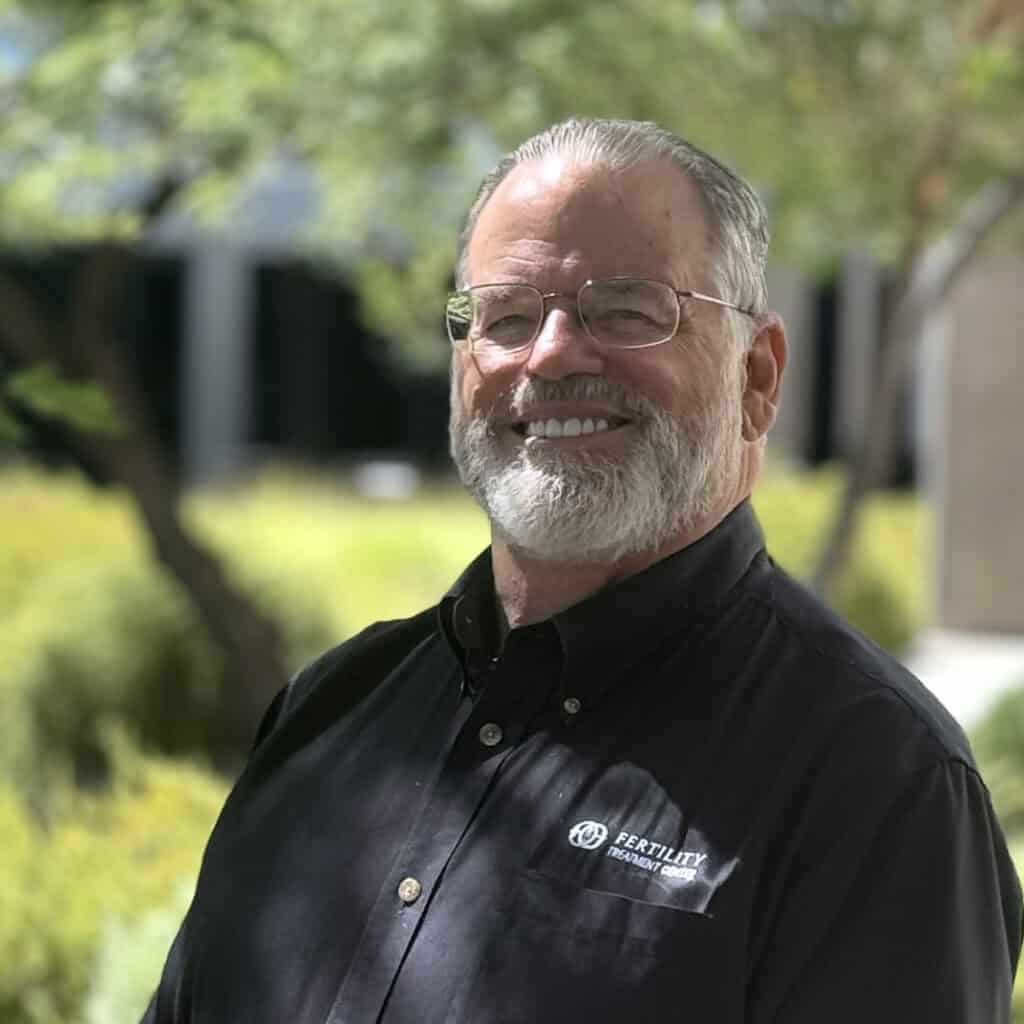
H. Randall Craig, MD
Dr. Craig has been named by physician peers, a Phoenix Magazine “TOP DOC” every year except one, since the award was established in 1995, “I am honored to have been chosen as an “All-Time Specialty Leader” & “Top Doc” by Phoenix Magazine every year since fertility was individually recognized. I am proud of the M.D. degree I earned at Washington University School of Medicine in St. Louis, and of the Reproductive Endocrinology & Infertility Fellowship I completed at the University of Chicago. But most of all, I am proud of the tens of thousands of patients FTC has helped achieve pregnancy and start families. As the father of five IVF children, I know the importance of having a family of your own, and I want to help you achieve that goal.”
From an early age, Dr. Randall Craig was absolutely fascinated with nature and science toys. He was naturally curious, extremely gifted in schoolwork, and had a passion for engineering and invention.
What his staff are saying…
“Dr. Craig always gives his best effort. Even in the most difficult and complex situations he finds success simply because he works for it! His experience, confidence and sense of hope always reflects in his work and it is very easy for his patients to see this.”
Motivation and Giving Back
Into the Future
Dr. Craig was drawn to the field of reproductive technology for three reasons; the ability to analyze like Sherlock Holmes, the opportunity to work with and invent the most cutting edge technology, and the gift of being able to make the most fundamental impact on peoples lives; helping patients achieve the dream of a healthy family.
After graduating from fellowship, Dr. Craig and Claudette moved to Phoenix so he could become the Director of the in vitro fertilization program at AFI. After establishing the success of that program, he founded the Fertility Treatment Center (FTC) in 1990. FTC is the most established and comprehensive board certified reproductive practice in the State of Arizona. As opposed to a standard private practice, the FTC was designed as an academic/research center and became a full medical research institute in 2005.
Dr. Craig was invited to join the teaching faculty at the University of Arizona medical school, and was promoted to Associate Clinical Professor of Ob/Gyn. He is a subspecialty professor in the Phoenix Integrated Residency in Obstetrics and Gynecology (PIROG), based at Maricopa County Hospital, St. Joseph’s Hospital, and the ASU Research Park. On several occasions, Dr. Craig has won the Teacher of the Year award from medical students and residents. He is very proud of the fact that he has trained, and is training, many of Arizona’s top Ob/Gyn physicians, several of whom now hold prominent leadership positions themselves.
The Early Years
From an early age, Dr. Randall Craig was absolutely fascinated with nature and science toys. He was naturally curious, extremely gifted in schoolwork, and had a passion for engineering and invention.
Dr Craig scored college level on standardized tests in the fifth grade. After watching Mr. Wizard on Saturday morning television he converted a room in the family apartment into a makeshift laboratory. Foreshadowing his later success in the field of infertility, he built a cryopreservation device to freeze insects for “space travel”. He launched the insect astronauts in a 30 G-force homemade rocket, and upon their return thawed them out. The ants woke up and walked away, but the grasshoppers did not fare so well. After a liquid oxygen fire from one of his experiments, the lab was exiled by his mother to a storage shed in the backyard.
Dr. Craig was recruited by the country’s top tech universities right out of high school. MIT, Pomona, and Georgia Tech all wanted him to join their ranks, but instead he chose to attend a top liberal arts college, Grinnell College in Iowa, to balance out his education. He received his BA degree in physics with minors in anthropology and mathematics, and obtained a broad background in philosophy, literature, economics, history, and Western Civilization, and now describes himself as “a victim of a Classical Education”. He graduated in three years on a full ride scholarship, then moved to St. Louis to obtain a second BS certificate degree in Biomedical Engineering from Washington University.
Dr. Craig did a brief stint as a low temperature physicist and loved the science, but he wanted to make a difference in people’s lives, so he applied to medical school. Never a Pre-Med student, he had to test out of college biology, then passed the MCAT in the 99th percentile. He was accepted as one of 120 students from a pool of nearly 9,000 applicants at the prestigious Washington University School of Medicine.
Personal Stake in Fertility
After completing a Residency in Ob-Gyn, Dr Craig decided to become an Infertility doctor. The field seemed almost like science fiction at the time – optical laser surgery had come online and the world’s first in vitro fertilization pregnancies had just been achieved. Modern medical Infertility was entering its Golden Era, full of incredible opportunities for creativity and vision, and Dr Craig wanted in on the ground floor of this exciting new field of medicine.
Ironically, Dr Craig and his wife waited too long to start a family and had trouble getting pregnant. They did In Vitro fertilization which resulted in twin girls, followed by frozen embryo triplet boys nine years later. This gave him a unique perspective as a fertility specialist, knowing what his patients are experiencing, and greatly strengthened his commitment to successfully building families.

